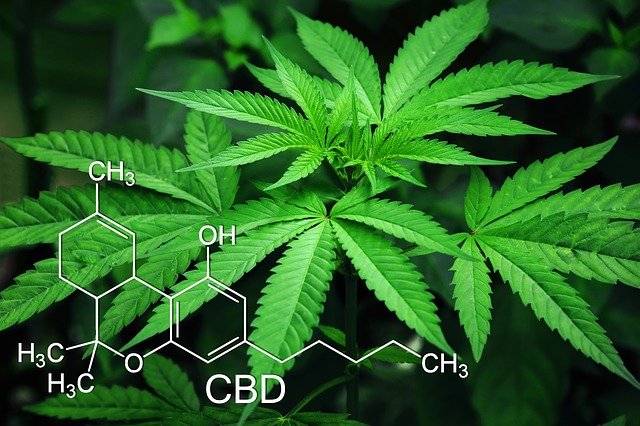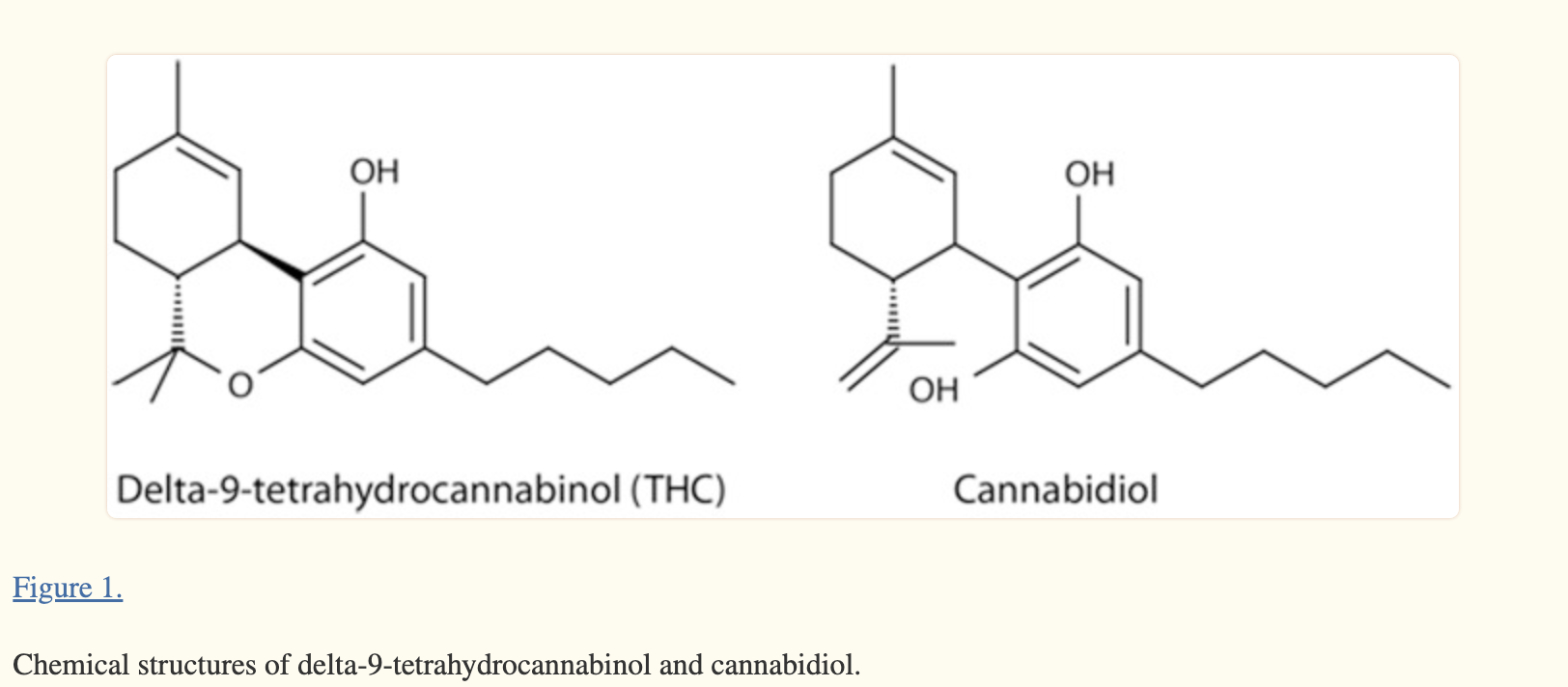HHC is a new cannabinoid getting much attention from the scientific community. It’s a non-psychoactive cannabinoid that has been shown to reduce pain in laboratory animals and humans. Although it is not an FDA-approved medication, HHC could use it for conditions such as fibromyalgia, chronic pain, and cancer. In clinical trials, HHC was shown to reduce pain in humans significantly.
If you’re a cannabis user or interested in becoming one, you’ve probably heard of cannabinoids. These powerful chemicals in cannabis produce the ‘high’ effect. That’s right — there is a new cannabinoid on the block, and it’s called HHC (or Hexahydrocannabinol).

What is HHC?
HHC is a cannabinoid that can also be found in other plants such as black pepper and lavender, as well as various types of mushrooms and echinacea. HHC is a relatively long-known cannabinoid studied by scientists and often referred to in medical research. HHC acts on several receptors in the brain and therefore provides different effects. HHC is a non-psychoactive cannabinoid. HHC is relatively safe. This discovery is significant because it’s a big step towards understanding how cannabis can work as a medicine.

How is HHC produced?
How THC is produced in cannabis is a mystery, but we know that it occurs in small amounts in the trichomes of female plants. The little THC is found in the strain Red Dragon and more. HHC is found in low quantities in cannabis, but in some strains, the amount of HHC is more significant than THC. HHC is a substance that is produced in our brains. The human body constantly has its own HHC, formed from arachidonic acid. HHC was discovered in the 1940s by chemist Roger Adams. He created HHC by adding hydrogen to the THC molecule and altering its physical properties. The process, called hydrogenation, is first described in a 1947 patent document.

Does HHC get you high? Does it have side effects?
You’ve probably seen this abbreviation in the cannabis industry frequently if you keep up with new research. But what is a hexahydrocannabinol (HHC), and why are we suddenly so excited about it? Some people perceive it as less intoxicating than THC. It interacts with the CB2 receptor instead of the CB1 receptor. The CB2 receptor is primarily found on cells in the immune system and nerve cells in the brain. What is its activation like?

HHC’s effects are euphoric, soothing, and relaxing, but not psychedelic. Information also states that it can help reduce nausea and stimulate appetite. Unfortunately, there are also no studies of its effects on the brain yet. In combination with CBD and THC, HHC can affect mood.
More specifically, CBD, THC, and HHC can act together to neutralize the undesirable effects of THC. This leads us to a substantial “softer” psychoactive effect. Crossbreeding with a high CBD strain can offer more protection against THC interference with memory. A study from 2011 states that HHC could have neuroprotective properties when it comes to brain damage caused by THC.

Does HHC have medical benefits?
HHC hasn’t been widely studied, unlike more abundant cannabinoids like delta 9 THC or CBD, but there has been some promising research. A 2011 study showed that some synthetic analogs of hexahydrocannabinol (HHC) “strongly inhibited breast cancer cell-induced angiogenesis and tumor growth.” Japanese researchers published a paper in 2007 describing HHC’s unique pain-blocking ability in mice.
HHC is relatively safe. They act as receptors for anandamide, a molecule that acts as a signaling substance in the brain. THC and anandamide are both produced in the body itself.

Impact of HHC
HHC is a cannabinoid with a biological half-life of 6 hours, but it is little researched by science. The effects of HHC are not yet fully known. It is unclear how HHC interacts with the brain. Still, it is thought to counterbalance THC because it makes cannabis less psychedelic.
The effects of HHC are more clearly noticeable on your body than on your mind. This is because HHC is considered a sedative. This means that its effects can already be recognized after a few minutes. H Corps are, for many users, not just desirable but necessary to counteract the psychoactive effects of THC. At the same time, HHC also has an analgesic effect. This means that it relieves pain and stimulates appetite.

Both chemicals activate the CB-1 receptor, the same receptor that THC activates. However, unlike THC, HHC is similar to the body’s endocannabinoid anandamide (a-nuh-DEN-uh-me).
- HHC has been studied for its health benefits and potential to become a novel therapy for various health conditions.
- HHC is believed to have various health effects, including analgesia and anti-inflammatory properties.
- HHC has been identified as a potential anti-hypertensive compound in the scientific literature.
- HHC has been shown to reduce brain inflammation. This condition may be linked to multiple sclerosis (M.S.), Alzheimer’s, and autism.
- Scientific evidence suggests that HHC may have anti-tumor properties.
- HHC has been shown to reduce intraocular pressure in glaucoma patients, similar to that of THC.
HHC binds to them and provides THC-like sensations. Cannabinoid receptors are distributed throughout the brain, including in the cortex, the limbic system, and the hippocampus. HHC’s benefits can be similar to THC’s but also more subtle.THC activates cannabinoid receptors in the hippocampus and cortex, making the user feel relaxed, expressive, and focused. Cannabinoid receptors in the limbic system make the user feel euphoric and make it easier to recall happy memories.

In recent years, studies have shown that the cannabinoid receptors in the hippocampus are also responsible for memory extinction. Therefore, THC has been studied for its use in treating PTSD. HHC has been found to bind with the same intestinal tract receptors as THC and CBD, which could be responsible for its anti‐inflammatory benefits.

Is HHC cannabis addictive? Will HHC show up in a drug test?
Whether or not HHC is addictive is up for debate. There are no reports of the substance being physically addictive, the same way cocaine or nicotine is. However, some researchers believe that HHC may trigger dopamine release or other neural pathways similar to those associated with heroin and cocaine addiction. Delta-9-tetrahydrocannabinol (THC) is a potent psychoactive chemical in the cannabis plant. Research suggests that marijuana can activate the brain’s dopamine reward system, which is responsible for the brain’s “feel good” response and motivates us to repeat behaviors that lead to that feeling.
There is also evidence that HHC may be psychologically addictive. Many people who have experienced the psychoactive effects of HHC report feeling “needing” the substance in their lives. While not every user feels this way, some do. It appears that HHC may not break down in the body in the same way as THC. Unlike delta 8, delta 9, and delta ten formats of THC, there is some proof that HHC doesn’t metabolize into 11-hydroxy-THC, which is the breakdown substance many drug panels tests for.

It is thought that the metabolization pathway for HHC into its active 11-hydroxy-THC form is inefficient. So carcinoid may not produce a metabolite fast enough to show up on a urine or blood test, or it just might not be there. There is also some speculation that regular cannabis will contain more CBD. As we’ve discussed, CBD is responsible for mitigating some cannabis highs and can ease anxiety.
CBD could counter the effects of HHC and may also block it from being metabolized in the first place. Those unused to inhaling, who have medical conditions, or who have lung issues should proceed cautiously. This is not suitable for everyone. HHC is not susceptible to the same metabolism process that THC is. This means there may be a more significant psychoactive effect, especially with experienced and more frequent cannabis users.
Folks with a history of drug test failures will want to exercise caution regarding HHC. A THC test is not a sufficient substitute for an HHC test. Even without a drug test on your mind, it’s wise to have a SmartyPens HHC test handy when it comes time for a follow-up appointment. HHC may break down at a different rate than THC. If so, a test indicating the recent use of HHC could make you feel safer.
How much is HHC vs. THC in cannabis?
The ratio of the two compounds will vary depending on the strain. As a general rule, however, HHC is about 60% of the total THC and CBD content of a cannabis product. There are many more folks trying HHC these days. Also, unlike THC, HHC is not psychotropic, so a box of HHC-infused s’mores probably won’t get you high.
So, if HHC doesn’t produce the same level of THC breakdown that THC does, it’s possible that HHC might not show up on a THC drug test, even though it’s technically a type of THC. But that may be because these tests look for a substance that shows up in the system and is derived from THC, not necessarily THC itself. An HHC drug test might be able to detect HHC, depending on how labs formulated the test.

What’s likely is that HHC will produce a positive on a methyl-THC test, which most drug panels do not test for in the U.S.
With that said, I don’t know how accurate the tests are for HHC, so use your best judgment. It’s been a little over a year since Government removed Delta-9 THC from the Controlled Substances Act, and people are still adjusting to the overnight change.
- Will HHC be different?
- Will it cause as much of a societal shift as THC did?
- Will HHC bring its own set of challenges?
When the Controlled Substances Act was passed in 1970, HHC was listed as a Class I drug, meaning that its manufacture, distribution, and possession were illegal throughout the United States. After THC came off the list last year, HHC is the only substance that remains on the list at the Class I level. Many experts in the cannabis industry find HHC’s future classification to be confusing.

Is HHC legal, and will it stay legal?
Congress made the hemp plant and every one of its subsidiaries governmentally lawful in the 2018 Farm Bill — as long as the plant or anything produced using it contains under 0.3 percent delta 9 THC

Where can HHC be found?
How THC is produced in cannabis is a mystery, but we know that it occurs in small amounts in the trichomes of female plants. The little THC is found in the strain Red Dragon and more. HHC is a cannabinoid that can also be found in other plants such as black pepper and lavender, as well as various types of mushrooms and echinacea.
HHC is found in low quantities in cannabis, but in some strains, the amount of HHC is more significant than THC. HHC is a substance that is produced in our brains.
Reportedly, only one U.S. manufacturer produces HHC and offers it wholesale. We aren’t sure that’s true, but it’s a fact that not many companies are making it.
Consequently, only a handful of companies are offering HHC at retail, and they haven’t been doing it for long.
Source Vaping360
Why choose cannabis over traditional medication?
The most common reason people choose cannabis over traditional medication is that they don’t want to take pills.
Cannabis is a safe, natural alternative to prescription medication. Naturally grown without chemicals, cannabis is a safe and viable alternative to the harmful side effects of prescription medication.
CBD MALL has you covered for your pets, family, friends, or yourself.
Cannabis is an all-natural substance that does not cause adverse side effects like other types of medication. A safer alternative to traditional medicines, marijuana is used more often as a treatment option for various medical conditions.
High quality, locally grown. Using cannabis for medicinal purposes is quickly gaining popularity, and for a good reason. It’s been used for thousands of years as a natural medicine with scientifically proven health benefits. Using cannabis to treat your medical conditions allows you to take advantage of these benefits without worrying about prescription medication’s potentially dangerous side effects.
Safe and affordable option. With an affordable monthly subscription, you can purchase the amount of cannabis you need without worrying about the costs of doctor visits or the medication itself. You can also cancel at any time without worrying about unused products being wasted.
“The natural way”

ENTER HERE!
Conclusion,
We are reaching out to all CBD users! Whether your therapy is a fresh flower or concentrate, tincture or vape, cannabis or hemp, we invite you to share your experience.
We would love to know what you think. Would you do us a favor and leave a comment if you have a moment?
It enables us to improve upon everything we do.
We’ve made leaving a comment or question easy! Just go below.
Some of the links in this article are affiliate links. If you were to buy something after clicking on one of these links, I would get a small commission.
Thanks for being part of the community!
D’Artagnan

